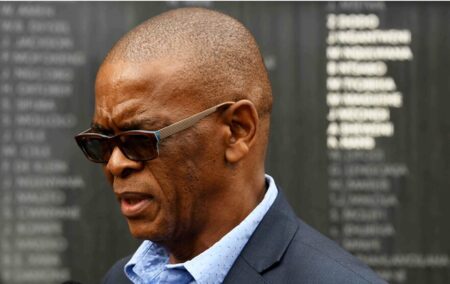The Institute of Race Relations (IRR) has welcomed the suspension of African National Congress (ANC) secretary-general, Ace Magashule, as a move in the right direction – should it in the fullness of time bring about mass prosecutions of senior ANC leaders implicated in corruption.
In a letter dated 3 May 2021, the deputy secretary-general of the ruling party, Jessie Duarte, informed Magashule that he would be temporarily suspended from his position as secretary-general pending the resolution of corruption charges against him.
IRR CEO, Frans Cronje, said there were three issues to watch around Magashule’s suspension.
The first was the strength of the corruption charges he was facing and the prospect that he could be acquitted of those specific charges, meaning that he would be free to resume his job. The prospect of an acquittal was considerable.
The second was that given the ANC’s influence over law enforcement agencies, prosecutors, and judicial appointments, the laying of criminal charges was likely to become a tool within the party that would be used to advance factional conflicts. The ANC had been specific that only members charged with a crime need be suspended. Those who are implicated in corruption but not charged will stay in office, meaning that state prosecutors can now determine the make-up of the ruling party leadership.
The third was that a great many leaders of the ANC who will go along with Magashule’s prosecution, as they did with former President Jacob Zuma’s suspension, are themselves implicated in allegations of corruption.
Cronje said: ‘The ANC knows that it must be seen to act on corruption given its parlous political standing, and scapegoating a handful of politically expendable ANC leaders should not be read as a firm move towards governance reform. It has been suggested that the balance of the membership of the ANC’s executive committee are implicated in allegations of corruption.’
Cronje added that the suspension of Magashule ‘clearly demonstrates that we have been right in advising that President Cyril Ramaphosa is in firm control of his party and government and that the policies of the government reflect his economic and ideological convictions’.

